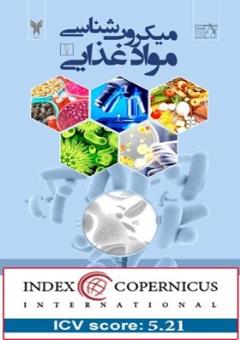The effect of chitosan-sodium alginate film containing citrus essential oil on the growth behavior of Vibrio parahaemolyticus and Listeria monocytogenes in Litopenaeus vannamei
Subject Areas : Aquatic Products
Laleh Roomiani
1
*
![]() ,
negin gholami
2
,
مهرنوش تدینی
3
,
negin gholami
2
,
مهرنوش تدینی
3
1 - . Department of Fisheries, Ahvaz Branch, Islamic Azad University, Ahvaz, Iran.
2 - Department of Food Science and Technology, Ahvaz Branch, Islamic Azad University Ahvaz, Iran
3 - Department of Food Science and Technology,Ahvaz Branch, Islamic Azad University of Ahvaz
Keywords: ", Citrus aurantium essential oil, ", ', Chitosan- sodium alginate film", , ', Litopenaeus vannamei", ,
Abstract :
In this study, the antibacterial activity of chitosan-sodium alginate film in combination with Citrus aurantium essential oil in order to control the growth of Vibrio parahaemolyticus and Listeria venocytogenes inoculated to Litopenaeus vannamei and also the physical properties of the film under refrigerated conditions for 15 days, was investigated. The treatments included chitosan-sodium alginate film, chitosan-sodium alginate film containing 0.1, 0.5 and 1.5% citrus essential oil. The results showed that the lowest amount of tensile strength (14.77%), water solubility (15.31%) and the highest amount of permeability to water vapor (1.79 × 10-10 g/msPa) in the film treatment with 1.5% citrus essential oil was observed. Also, adding essential oil to the film increased the thickness (0.171 mm) and elasticity (59.37%) compared to the control (p<0.05). The lowest amount of V. parahemolyticus and L. monocytogenes was measured in the chitosan-sodium alginate film treatment containing 2% citrus essential oil (p<0.05). During 15 days of storage, chitosan-sodium alginate film containing essential oil could reduce V. parahemolyticus and L. monocytogenes compared to the control treatment in shrimp (p<0.05). Chitosan-sodium alginate film containing 2% citrus essential oil delayed the growth of V. parahemolyticus by 6 days and L. monocytogenes by 3 days compared to the control treatment.

